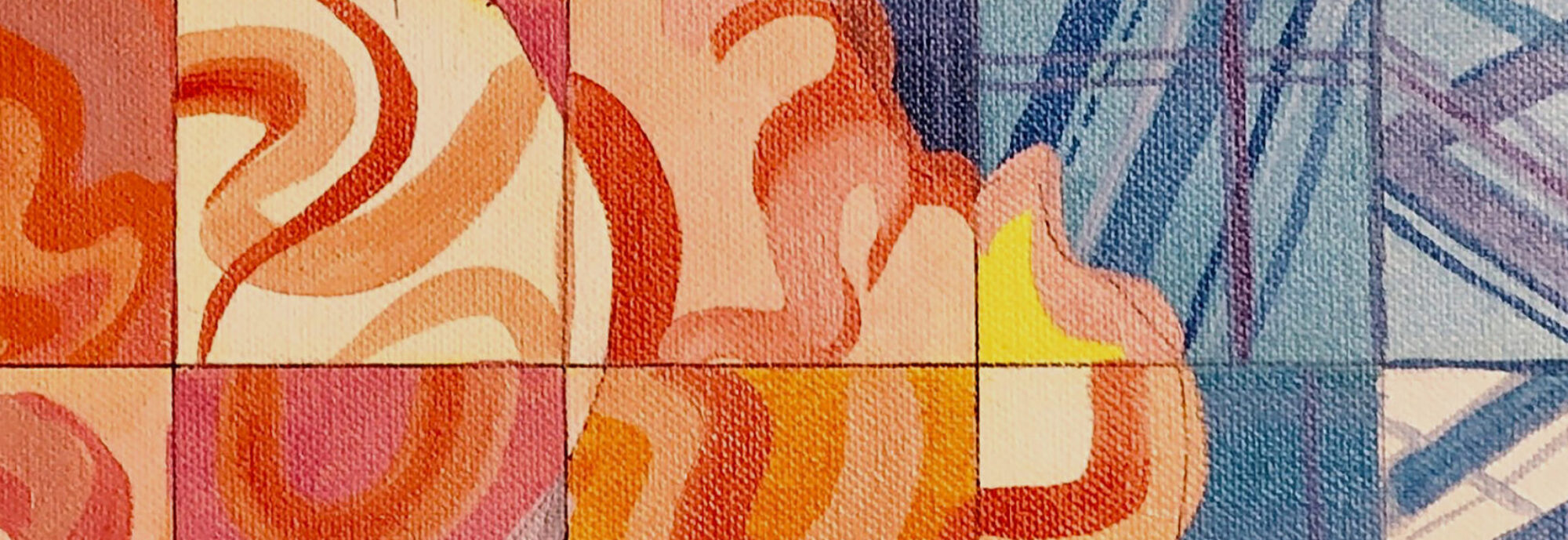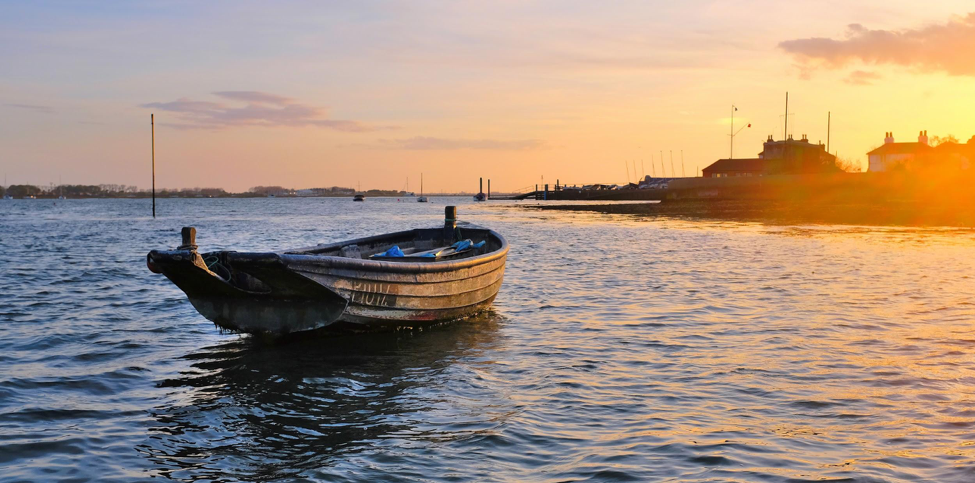By William Todd Seabrook
It was a hot day when Olly and I went out to find the Fish Gods. We packed the boat, and pushed off from shore, rowing with one paddle after Olly lost the other in the water slapping at some bass.
On the shore there was a man in a straw hat sitting in the cattails, one hand tucked inside his half- open shirt, the other propping up his chin, a wandering mind that could not readily tell the difference between the water and the sky. The sun had tanned his bare feet and long, cracked hands. Every so often he would spin the stalk of a cattail between his fingers, but he did not touch the water, or whisper into the wind, or give any sign that he acknowledged or loved or despised those tiny creatures.
And still, he stole our fish.
They gathered at the edges of the river, swirling under his shadow, squeezed in so tightly he could have scooped them up by the handfuls. But he only sat there, his hand under his chin, motionless, as if the weather had carved him out of the Earth over the eons, his eyes weary with the weight of it all.
Olly carefully plucked a pencil from the box, saying, A love letter, I think, and leaned over the side of the boat and began to write on the water’s surface. As the letters rip- pled into the current, the fish swam away from the muddy riverbanks of the old man, because fish always fall for romance, them being fish, although only one of them—a trout with only half a fin—swam up to the water’s edge and nipped at the pencil tip as Olly wrote.
My darlings, my cherished creatures, there is not time enough for us in this dismal world, so please let us laugh together and love together before all else falls before us.
He signed the note with his name and kissed the water with his chapped lips. I lifted the net, but Olly threw his hand into my chest. There’s only the one, he said. There is time enough, and I will have them all.
After a moment, the one-eyed fish swam back the shore, followed by others, but not all.
Goddamn you, old man! Olly yelled, but the man did not stir.
You have to be sincere, I said, grabbing a pencil out of the box. The sun had grown hot, very hot, and the sweat ran into my eyes.
I hooked my foot under the wooden seat and leaned over the water, dipping my pencil into the surface.
Young Lords, flee before the world sees your end. I love you too much to watch your gills grow green and your scales harvested for their silver. Your lives are filled with dread, I know, and there is nothing to be done. Die slowly, or die quickly. That is the offer.
I signed it, but realized I had not been honest enough, so I added: P.S. I am not a fish.
The fish scattered, then reformed in their clusters, a handful of them floating in front of me now, too, although the bulk of them had returned to the shore.
Well that didn’t work, I said.
Just hold on for a few minutes, Olly replied. You want them to dwell. It shakes their souls loose, and gives them a sense of purpose. You have to give them purpose before you can expect them to sacrifice for a higher cause.
What higher cause? I asked.
The only higher cause there is, he said, twirling his pencil between two fingers. The cause of the passionate, whatever it may be.
An hour passed, and then another. The sun grew even hotter, burning us to our cores, but still the old man did not move. The fish, however, had slowly returned to us, swimming in circles below our boat, their tiny minds swirling too, their mouths gulping it all down. After the third hour they had all amassed in one large clump under the spot where Olly’s words had stained the water.
I told you, Olly said, picking up the net. They’ll die for passion.
On the shore, the old man unhinged his arm from under his chin and dipped his finger into the water, twisting it in a circle, but writing no message.
The fish began to swim towards the old man, but Olly was quicker, scooping them up in one motion and dumping them into the cooler. The slippery fish twisted in the ice, their backs breaking and their eyes spinning in their sockets. No matter how I tried, I could not feel sad for such ignorant beasts. Before Olly closed the lid, he kissed his fingertips and extended them to the pile of fish bending in agony. When he did so, they all stopped moving and lay still.
Simple as that, Olly said.
Death is only complicated for the living, I said, shielding my eyes with my hand. It’s brutal out here. Shouldn’t we head in?
But there are more fish out there! Olly yelled, tipping the boat side to side. All the fish in the world are out there, just waiting to be scooped up! Isn’t that right, old man?
On the shore the old man had his hand under his chin again, but made no acknowledgement of us, or the boat, or the river for that matter. As if none of it were there. By his feet was a single fish, the half-finned trout, flitted between the cattails as if searching for a way to come ashore.
It’s better not to dwell, old man! Olly yelled, pointing to the cooler. This is what’ll happen to you.
But the old man in the straw hat did not reply, or even look out way, looking elsewhere, at a more interesting or less interesting place.
A true God, I thought.
Above us, the clouds slowly curled themselves into letters. They said: I am not a fish, either.
About the Author:
William Todd Seabrook received his MFA from the University of Colorado, and his PhD from Florida State University. He is the author of four prose chapbooks, and his work has appeared in SmokeLong Quarterly, Phoebe, The Volta, Tin House, Mid-American Review, PANK, CutBank, and Quiddity among others. He is the editor of Cupboard Pamphlet, a prose chapbook press.

